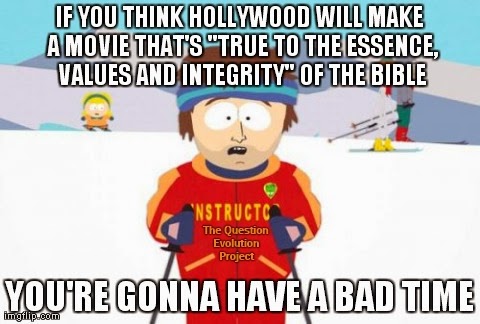Successful Straw Man Attack on Noah!
A sign of intellectual dishonesty (and possibly laziness) is when people are unwilling to go to the source for information. They "learn" through gossip, disingenuous news sources, Web sites known for dishonesty and bias, make up their own "facts" from a little information and a lot of prejudice, and more.
Too many people get their information about creationists from anti-creationist sites and the uninformed opinions of others. (Someone commented to me, "I have never actually spoken to a creationist. I don't know what you believe or why you believe it. Finally, I want to know. So I'm asking you." Although I am not the spokesman for all creationists, that is a step in the right direction. I gave him links to some biblical creation science organizations so he could get some first-hand information.) Similarly, people will go to sites along the lines of "I-Hate-God-Even-Though-I-Pretent-He-Does-Not-Exist-Except-When-I-Want-To-Hate-Him-And-Here-Are-My-Excuses-To-Justify-Hating-God-And-The-Bible-And-Christians dot com" and get horrible information.
In my opinion, some people avoid going to the source because they do not want to know what someone really believes and teaches. My opinion is supported when an anti-creationist is challenged to actually read the material, and they go haywire with a reply with something like, "I know what they're going to say, and it's all lies and propaganda". I wonder what an "I know what you're going to say" fallacy is called. A form of appeal to motive? Mayhaps.
So anyway, this is a source for straw man logical fallacies; people will set up a misrepresentation of someone's position and then knock it down. Some of this is done with the aforementioned intellectual dishonesty or laziness, but it is often done through prejudicial conjecture. It seems that if someone is going to report on a topic, he or she should do a bit of serious investigation. Well, a reporter from an evolutionary "science" magazine wrote about the Noah movie starring Russell Crowe, and he managed to ridicule God, the Bible, Genesis and more. But it was a straw man attack, not actual reporting.
The reporter kicked over a straw Ark, too, with a Flood of air.
“The Ark: Could Noah’s Tale Be True?” Benjamin Radford, a Live Science contributor, asked. The expected answer is that a “tale” cannot be true. It’s already been rendered false from the way the question was asked. But to fill in the rest of his column, Radford knocked down, with a Flood of air, a straw Noah standing beside a straw Ark.
It’s generally advisable in debate to take on your opponent’s best arguments. Radford clearly did not do his homework, because instead of facing the literature from scientific and theological creationist scholars about the evidence for a worldwide flood, the feasibility of an Ark, and the reliability of the story of Noah, he appears to have simply regurgitated the uninformed attacks of fellow skeptics. His only pro-creation source was a 1984 paperback by Dr. Henry M. Morris, Jr., The Biblical Basis of Modern Science, from which Radford quoted mostly assertions, not the evidence supporting them; this book was an overview of creation evidences, not a detailed examination of Noah’s Ark or Flood geology (see Morris’s earlier work, The Genesis Flood). Though he quoted Morris’s calculations of the capacity of the Ark, Radford did not consult any of the creation journals or book-length works that examine the Flood evidence at length, nor did he quote any living Flood geologists. His main skeptical source is Ken Feder’sEncyclopedia of Dubious Archaeology (2010), which lumps the Biblical record in with the bizarre like von Daniken’s meteoric fad, Chariots of the Gods. (See association and card stacking in the Baloney Detector.)
The article repeats these misconceptions about Noah and the Ark:You can go to the source of this article at "Victory Declared! Science Reporter Trounces Straw Noah".
